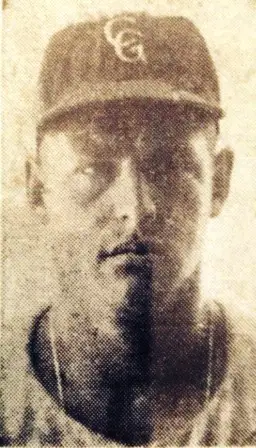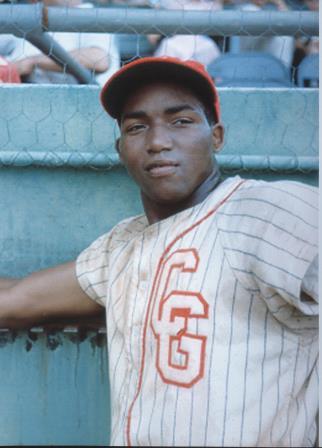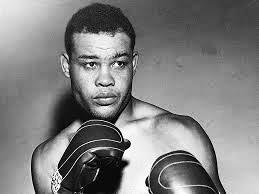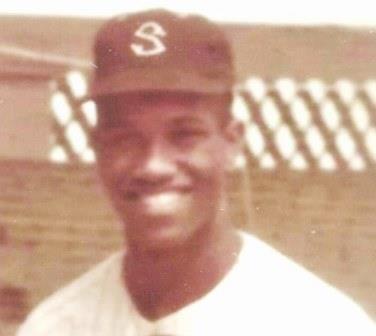
Frank Howard, all 6’7” of him, was the tallest import to ever wear a Caguas Criollos uniform. His Puerto Rico nickname was “El Condominio” (The Condominium). He starred for the Criollos in 1960-61 and 1961-62, after playing in the 1959-60 Dominican Winter League for league champion Escogido (“Red” team). Howard ate 12 scrambled eggs for breakfast in his Santo Domingo hotel. Teammate Felipe Rojas Alou would take him lobster fishing on off-days. Escogido (39-22) won the most regular season games in their history, with Ed Roebuck, Stan Williams, Fred Kipp, Danilo Rivas, Juan Marichal and George “Garabato” Sackie pitching. Pete Reiser, ex-Brooklyn Dodgers star OF and Norm Sherry (player-manager) managed Escogido. https://www.diariolibre.com/deportes/beisbol/el-escogido-gano-la-serie-regular-del-campeonato-1959-60-ed-roebuck-9-0-y-stan-williams-12-6-LA14277279 The term “criollo” was used in this article to reference Native players, e.g., Felipe and Matty Alou, Ricardo Joseph and Ozzie Virgil.
Howard is credited with the longest post-1942 Puerto Rico League HR on record, a 536-foot shot (measured by an engineer) at Sixto Escobar Stadium off San Juan’s Jack Fisher, 1960-61 finals. Those who were there assert this blast was closer to 600 feet. The real old-timers recall a March 1, 1942 HR—at over 600 feet—by Santurce’s Josh Gibson that reached the Atlantic Ocean after clearing the wall. “You learned to hit at old Sixto Escobar after facing [Santurce’s] Bob Gibson and Juan Pizarro and [San Juan’s] Bob Bolin and Tite Arroyo,” said Howard. “Every young player should play two-to-three years of winter league baseball to refine their skills. The Puerto Rico League kept me in the big leagues and toughened me up. It was better than AAA.” Howard was a coach with the 1991 New York Yankees when the author interviewed him at Yankee Stadium, in the home team’s dugout, next-to-last day of that season.
Caguas is Competitive, 1960-61 to 1962-63

Vic Power managed Caguas to a 30-34 mark in 1960-61, with a 19-13 first-half, but 11-21 second-half. Caguas, first-half winners, played the San Juan Senators (second-half winners) in a best-of-nine finals, won by the Senators, five games to three. Power used Frank Howard for relief pitching, per Héctor Barea, team historian. Barea recalled that Howard would sit in the back of the bus on road trips to Ponce and Mayagüez, and devour a whole gallon of ice cream! Howard attended daily early morning Mass, in Caguas, regardless of what time he went to bed. Howard and Lee Maye—whose second occupation was a professional singer—produced for Caguas: Howard hit 14 HR and drove in 35, fifth-best in the league; Maye did a splendid version of the Platters hit song “Only You” and led the team with 35 runs scored. Félix Torres (43 RBI), Félix Mantilla and José A. Pagán were a trio of the club’s best Native hitters. George Brunet, fourth in the league with 77 strikeouts, was the team’s best starter. LHP Roberto Vargas ended his Caguas career in 1960-61, prior to his final (1961-62) season for the expansion Arecibo Wolves, managed by his close friend, Luis R. Olmo.
LHP Ron Perranoski joined Caguas, January 1961, and got valuable experience, pitching against Santurce’s Orlando Cepeda and San Juan’s Roberto Clemente. “I was released by the [1960-61] Caracas Lions,” said Perranoski, “but I showed the Dodgers I could get big-league stars Cepeda and Clemente out, pitching for Caguas…” He was 5-3, 2.51 ERA for Caracas, in 64.2 innings, starting nine of 11 games. Perranoski, a minor-league prospect, was acquired by the Dodgers, April 8, 1960, in a trade sending Don Zimmer to the Chicago Cubs.
Los Angeles sent LHP Pete Richert—a teammate of Frank Howard with the 1963 World Champion Dodgers and Washington Senators—to Caguas, 1961-62 season, when Preston Gómez, a native of Cuba, managed the Criollos the first-half of the season. Gómez was replaced as manager by OF Jim Rivera, a key cog on the Criollos 1953-54 Caribbean Series champion. In the early 1960s, Las Vegas-style entertainment and gambling came to San Juan’s hotels and casinos, post-Cuban Revolution. Havana was no longer an entertainment and gambling mecca. Ballplayers who lived in Caguas or San Juan could have a night out on the town. Richert appreciated the efforts of Island teammates to show him a good time. “It was fun. José [Pagán] and Félix [Mantilla] found a way to take care of us,” said Richert. “After a (home) game, four or five of us would get in a car and drive 30 miles to San Juan for a show and something to eat.” Richert remembered Puerto Rico as a great place to play and where one could learn about someone else’s culture and lifestyle. “They went out of their way to make sure that everything was good,” said Richert. “You were told about the right places to eat.”
Caguas catcher Woody Huyke recalled that Imports (Stateside players) in the early 1960s did not rent cars. (This became more prevalent in the 1970s.) Huyke noted Caguas management found furnished homes for the Imports; their wives would select kitchen supplies at the Caguas ballpark and take them to their winter home by taxis. The way Stateside players adapted to Puerto Rico’s lifestyle was a plus, from Huyke’s viewpoint. Dr. Emigdio Buonomo became Caguas’s team owner, 1961-62, and was a fervent believer in keeping the Imports engaged in local culture and events. Buonomo set up Player of the Week Award Ceremonies at a local hotel or restaurant.
Frank Howard played an 80-game season, 1961-62, and responded with a .318 AVG, 14 HR and 49 RBI, fourth in AVG, behind San Juan’s Miguel de la Hoz (.354), Arecibo’s Ed Charles (.332) and San Juan’s Tony González (.322); tied Arecibo’s Tommie Aaron and Lee Maye with 14 HR, five behind league leader Orlando Cepeda’s 19. Howard was third in RBI and runs scored. The second-place Criollos (43-37) played a semi-final series versus third-place Santurce (42-38). In Game Seven, Caguas’s Luis Tiant faced the Crabbers Juan “Terín” Pizarro. The only run was a Martín Beltrán HR for Santurce. Tiant remembered Beltrán’s HR, three decades later, when he conversed with the author at Vero Beach, Florida, then-Dodgers spring training camp when Tiant was a minor-league pitching coach with the Dodgers. “Ay (Oh), Martín Beltrán [a St. Louis Cardinals prospect],” exclaimed Tiant. “I still remember that HR…” Tiant reinforced the Mayagüez Indians, February 6-14, 1962 Inter-American Series at Sixto Escobar Stadium after Santurce swept Mayagüez in the finals. Tiant later pitched for the 1964-65 Ponce Lions and 1982-83 Santurce Crabbers.

The 1962-63 Criollos faced Santurce in the semi-finals. Caguas prevailed. Hiram Bithorn Municipal Stadium, shared by San Juan and Santurce, hosted Games Three-to-Five. Joe Louis, ex-heavyweight boxing champion, was the guest of honor in Game Three—first post-season contest played at Bithorn. Game One, played in Caguas, January 26, 1963, ended 1-0 in favor of the Criollos. Pizarro threw 12.1 scoreless innings before Craig Anderson relieved him in the 13th. Crabbers skipper Ray Katt brought in LHP Sam McDowell to face Tom McCraw in the 14th frame. McCraw’s game-winning hit scored Howie Goss with the winning run. McCraw began his 13-year big league playing career with the 1963 Chicago White Sox, as Pizarro’s teammate. “Once you met a player, played with him or against him in Puerto Rico, and had a drink or dinner with him, you could establish friendships in an atmosphere that was a little more relaxed,” said McCraw. “Some of the guys I played with/against in Puerto Rico have been my friends all through and probably will be until the day I die. It’s special. Terín just took me under his wing and told me where to go where not to go in Chicago, which is very important,” said McCraw.
Santurce took Game Two, 5-3, January 27, 1963, on a two-run HR by catcher Valmy Thomas, plus four scoreless relief innings by Kindo Geigel, winning pitcher. Caguas won Game Three, at Bithorn, by the same score. Jim Rivera’s 19th inning triple off Dave Tyriver drove in Nate Oliver with the winning run. Earl Wilson blanked the Crabbers, 6-0, in Game Four. Sam McDowell gave way to Craig Anderson—a starter for the 1962 New York Mets—in the eighth. Anderson had pitched for the 1961-62 Crabbers, winners of the 1962 Inter-American Series, before joining Santurce, latter part of 1962-63. “After pitching at Bithorn in the playoffs, I felt Escobar Stadium had more atmosphere…Bithorn had more seating and better parking,” said Anderson. Santurce took Game five, 9-2, behind Pizarro’s pitching and Beltrán’s hitting.
Caguas won it, four games-to-two, with a hard-fought (literally) 8-5 win, in Game Six. Craig Anderson’s pitches were working that January 31, 1963 evening with a 5-1 lead, top of the sixth, thanks to Elrod Hendricks’s two-run HR. Caguas hurler John Tsitouris then hit Valmy Thomas with a pitch. Thomas said something to Tsitouris en route to first base. The pitcher threw a new baseball at Thomas and a fight ensued. Ray Katt finally separated the two, but was seriously hurt in the fracas, according to Sam McDowell. “Katt tore his heel because of that fight with the opposition [Caguas],” said McDowell. “He lost his job as he was to manage the Cleveland Indians in 1963, but couldn’t because he was on crutches for six months.” Pinch-hitter Herminio Cortes’s three-run HR off Geigel was the deciding blow in Caguas’s 8-5 win.

The Criollos fell to Mayagüez, four games-to-one, in the finals. Mayagüez copped the first two games, 1-0 and 4-2, at home. Jim Rivera homered for the Criollos in Game Two. Caguas took Game Three, at home, 9-4, behind Earl Wilson, but Mayagüez claimed wins the next two nights (February 4-5, 1963) to claim the title. LHP Gary Peters dominated the Criollos in Game Four, and Boog Powell homered for the victors. Mayagüez won Game Five, 11-5, to advance to the 1963 Inter-American Series, a four-team event in Panamá.Woody Huyke liked having Jim Rivera as a [1961-62 and 1962-63] player-manager and teammate. “Jim had a rough background, but was a tremendous human being and someone you respected. I got a Christmas card from him every year.” Rivera’s lineage was from Puerto Rico, so he played in its winter league as a Native, despite being born in New York City, as was the case with Bobby Bonilla, born in New York City of Puerto Rican heritage; grew up in the Bronx; and played in Puerto Rico, including Caguas, 1995-96, as a Native. Rivera was an amateur boxer in New York City; light-heavyweight champion of his Army Air Corps unit at Camp Barkley, Texas. He served a five-year prison sentence (1944-49) in the Atlanta Federal Penitentiary before being paroled. Rivera impressed Ponce manager Rogers Hornsby, 1950-51 season. Hornsby loved Rivera’s hustle and ability to play all three OF positions. Rivera told the author: “I showed Horrnsby in Puerto Rico [1950-51] that I could hit, run and play defense. Hornby spoke to me in the dugout before a Caguas-Ponce game to arrange a meeting at a Ponce hotel.” Rivera—at this meeting—signed a AAA contract to play for the 1951 Seattle Rainiers Pacific Coast League (PCL) team, managed by Hornsby. Rivera earned the 1951 PCL MVP Award, with a .352 AVG, 231 hits and 135 runs scored.
Jim Landis, five-time AL Gold Glove winner (1960-64), alerted the author that “Rivera was a very intelligent ballplayer and someone who helped me immensely when I joined the 1957 Chicago White Sox.” Circling back to Hornsby, he was the hitting coach for the 1962 New York Mets. Hornsby put in a good word for José “Pantalones” Santiago, who pitched superbly for Hornsby’s 1950-51 Ponce Lions. The 1962 Mets hired Santiago to be a batting practice pitcher.
Caguas and Other Winter League Teams’ Connection to 1963 World Series
The Dodgers firmly believed in sending their top prospects to winter ball, whether it be Puerto Rico, the Dominican Republic, Cuba (pre-1960) or Venezuela. Dick Traceewski, who roomed with Sandy Koufax between 1962 and 1965, recalled that he (Tracewski) played winter ball in Colombia and Panamá, in “less competitive leagues.” Tracewski opined that part of the Dodgers success in winning 1963 and 1965 World Series crowns was due to winter ball experience.
When we review the 1963 Dodgers starting line-up in Game One, 1963 World Series, versus the New York Yankees, the ENTIRE Dodgers starting line-up had winter ball experience.
• Maury Wills, SS—Pastora, in Venezuela’s 1958-59 Occidental League. Wills perfected the art of base stealing after observing Luis Aparicio, with Maracaibo; “I improved my base stealing technique in Venezuela.” Wills’s 39 SB for Pastora were a league single-season record. In 1957-58, Wills played SS for Puerto Rico’s Mayagüez Indians, managed by Mickey Owen, who “Encouraged Wills to become a switch-hitter,” adding, “There were RHP Wills could not hit…Maury, you’re an intelligent guy and you should switch-hit…why don’t you come out in the morning and I’ll pitch batting practice to you.” With Owen pitching extra batting practice to Wills in morning workouts, Wills made positive strides hitting from the left side. Owen, who managed the 1953-54 Caguas Criollos to a Caribbean Series title, noted: “I’ll take credit for Wills becoming a switch-hitter, but give credit to Maury for being smart and working hard…a dandy SS and the best base stealer I ever saw…” Wills led the 1957-58 Puerto Rico League with 25 SB, a confidence-booster. His Puerto Rico Winter League stats are at https://beisbol101.com/maury-wills/ . Wills’s Venezuela story is at: https://www.elemergente.com/2014/09/efemerides-maury-wills-impone-record-de.html.
• Junior Gilliam, 3B—In Puerto Rico, fans called him “The Black Sea,” since he covered so much ground at 2B with Santurce. He played one game with Almendares in Cuba (1948-49), before joining the 1948-49 Aguadilla Sharks in Puerto Rico. Gilliam led Puerto Rico’s League with 63 runs in 1951-52, and 55 in 1952-53. His 75 runs scored, 1950-51, were second to Jim Rivera. Gilliam played two seasons under manager George “Tubby” Scales with Santurce (1950-52), and helped them win 1951 and 1953 Caribbean Series titles. His Puerto Rico Winter League stats are at https://beisbol101.com/jim-junior-gilliam/. Gilliam’s Caribbean Series stats including his .383 AVG and .617 SLG were in the author’s April 18, 2020 blog, at https://beisbol101.com/jim-gilliam-baltimore-elite-giants-aguadilla-almendares-minors-and-santurce-part-i/
• Willie Davis, CF. With Licey, 1961-62 season, he was called “El Lobo Negro” (The Black Wolf), per Dick Hughes, his teammate. They lived at the same hotel in Santo Domingo. Willie Davis, 1959-60, played for Rapiños, Venezuela’s Occidental League. He homered off Cuba’s Orlando Peña on February 8, 1960, in the Caribbean Series. Davis’s two triples led all players; his two SB, in six games, tied for the series lead.
• Tommy Davis, LF. Davis, a two-time (1962 and 1963) NL batting champion, after a fine 1959-60 season with Caguas, was selected as MVP, 1960 Caribbean Series (.409 AVG, .818 SLG). Caguas player-manager Vic Power appreciated Davis’s talent and focus.
• Frank “El Condominio” Howard, RF. Howard’s 1959-60 season with the Escogido Lions and two campaigns with Caguas (1960-62) were mentioned earlier. Howard is listed on Caguas’s All-Star Team of the 1960s, as a 1B. Winter ball “toughened him up.” Howard epitomized an Import who produced in Puerto Rico.
• Bill Skowron, 1B. Skowron played for the 1950-51 Ponce Lions, under Rogers Hornsby. Skowron was in the Yankees system, with no minor-league experience as of 1950. Hornsby managed the 1950 Beaumont Roughnecks, Yankees system, and felt Skowron would benefit playing winter ball. Skowron hit three HR with 29 RBI, and posted a .302 AVG. for Ponce. Rudy Hernández, first Dominican-born pitcher to play MLB (1960 Washington Senators) recalled Hornsby was once annoyed with Ponce’s lack of production and called the team in for a 3:30 p.m. batting practice, prior to an 8 p.m. game. Hornsby had player-coach Francisco “Pancho” Coímbre pitch to him, and proceeded to hit 20 rockets. Then, Foca Valentín pitched to Coímbre, who impressed Hornsby, Skowron and his Ponce teammates, with his line drives.
• Dick Tracewski, 2B. Tracewski earned three World Series rings as a player (1963 and 1965 Dodgers, and 1968 Detroit Tigers), plus a 1984 ring as a Detroit coach under Sparky Anderson. Tracewski played in three of Koufax’s four no-hitters. His winter ball experience in Colombia and Panamá kept him sharp. He had a deep respect for Caribbean players such as Roberto Clemente, Tony González and Tony Taylor.
• John Roseboro, catcher. Roseboro played for the Caracas Lions, 1956-57, prior to his June 1957 MLB debut with Brooklyn; and returned to Caracas, 1957-58. He impressed Dodgers management with a .338 AVG and .560 SLG for Caracas, 1956-57, with 10 HR and 40 RBI, in 225 AB. In the post-season, his team bested Valencia, in the finals, with Roseboro going seven-for-21, with a .524 SLG. His 1957-58 AVG for Caracas was .292 with a .500 SLG. http://www.pelotabinaria.com.ve/beisbol/mostrar.php?ID=rosejoh001 Roseboro had a .278 AVG and .556 SLG in the 1957 Caribbean Series.
• Sandy Koufax, starter. Koufax was 1963 World Series MVP with a 2-0 record, 1.50 ERA and 23 strikeouts in 18 innings. Part II of this Criollos chronology highlighted Koufax’s two months (mid-October to mid-December 1956) pitching for Caguas-Rio Piedras. He was 3-6 with a 4.35 ERA, but fanned 76 in 64.1 innings, with a one-hit SHO versus Mayagüez, October 31, 1956; and a two-hit SHO versus Santurce, December 16. This was Koufax’s only professional pitching experience outside of the NL, 1955-1966. His Puerto Rico Winter League stats are at https://beisbol101.com/sandy-koufax/.
.
Part III ends with a Table depicting a 1960s Caguas Criollos All-Star Team.
With deep appreciation to Craig Anderson, Héctor Barea, Rudy Hernández, Frank Howard, Woody Huyke, Jim Landis, Tom McCraw, Sam McDowell, Ron Perranoski, Pete Richert, Jim Rivera, Bill Skowron, Luis Tiant, Dick Tracewski and Héctor Valle. Thanks to Jorge Colón Delgado, Official Historian, Roberto Clemente Professional Baseball League.

